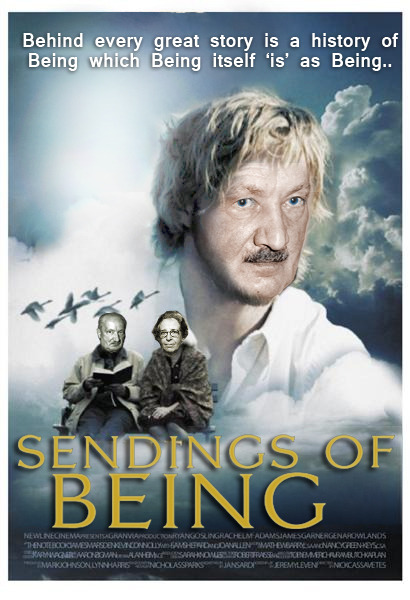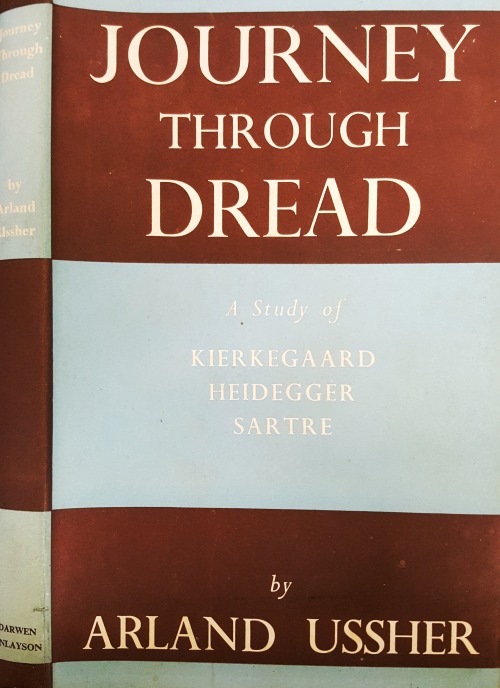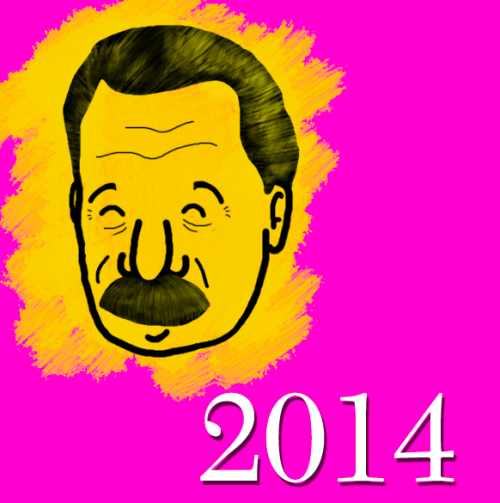#heidegger
A few more for the FFVII minor arcana.
I often get asked if the deck will be printed, and the answer is yes! The best way to keep updated is on Patreon, where you’ll also get card meanings, WIPs, and monthly prints of the cards and pretty much anything else I’ve drawn, if you so choose. Bonus being you’ll also be helping me pay my bills and ensuring I can keep creating. Please consider joining us over there if you can.
Previously:FF playing cards|FFVII playing cards|FFXV Tarots|FFVII Tarots|FFXV Playing cards
Post link
Trailer for Mudigkeitsgesellschaft: Byung-Chul Han in Seoul / Berlin
WHY DO I HAVE THE WORST BRAIN

happy early valentines kids
»Wenn man heute eine Art Volksabstimmung über die wichtigsten philosophischen Kategorien veranstalten würde, so wäre sicher der Mensch an erster Stelle genannt. Und daß es nur auf den Menschen ankomme, das wird man ja heute überall, vom Betriebsausflug bis zu der Vorlesung, wiedergekäut finden, als ob nicht bereits die Wiederholung das tiefste Mißtrauen erwecken müßte. Ich glaube, daß diese unsägliche Betonung des Wortes Mensch – wie sie übrigens der Zeit der humanistischen Bewegung, etwa der Zeit von Wilhelm von Humboldt, gänzlich fremd gewesen ist; Sie werden weder bei Humboldt noch bei Fichte noch bei Hegel den Ausdruck Mensch mit irgendeiner derartigen Emphase, mit irgendeinem derartigen Tremolo ausgesprochen finden; sondern weil das Substantielle hier überall der Geist oder die Idee ist, erscheint der Mensch einfach als das was er ist, nämlich zunächst einmal als das biologische Gattungswesen –, und zu so etwas Geweihtem ist er dann erst geworden, nachdem etwas anderes Sinnvolles nicht mehr übrig ist und die Profanität gewissermaßen zu ihrem eigenen Sakralbereich verdoppelt werden muß. Ich würde sagen, daß eben deshalb, weil es in der Welt, in der wir leben, auf den Menschen – und schon dieses derMensch, schon dieser Singular ist in einer Welt von gespaltenen Interessen und in einer Welt, in der es so etwas wie ein Gesamtsubjekt überhaupt nicht mehr gibt, eigentlich eine Ideologie und ein Schein – überhaupt nicht ankommt, eben deshalb ununterbrochen von dem Menschen und dem Dasein gesprochen wird; daß deshalb immer gesagt wird, daß alles auf den Menschen ankommt. Und jeder einzelne von uns, die wir hier sitzen oder stehen, kann es an sich erfahren, daß wir in einem unendlichen Maß herabgesetzt sind zu bloßen Funktionen einer übermächtigen Apparatur und daß wir das, was wir als unsere eigene menschliche Bestimmung betrachten können, überhaupt dieser Apparatur höchstens noch ablisten können – und was es dann mit einer solchen Bestimmung für eine Bewandtnis hat, die eine gewissermaßen gestohlene menschliche Bestimmung ist, das brauche ich nicht weiter auszuführen. Mit anderen Worten: alles das, das ganze Pathos, das sich an Worte wie Mensch und Daseinsanalyse und all das anschließt, ist im Grunde ein lucus a non lucendo im allerwörtlichsten Sinn, nämlich der Beweis dafür, daß es den Menschen eigentlich nicht gibt; er wird nur deshalb von der Philosophie sozusagen auf dem Markt ausgeboten, damit die Menschen auf diese Weise über ihre eigene Entmenschlichung sich betrügen können. Sie werden nur deshalb als Subjekte zum Sinn ihrer eigenen Existenz verklärt, weil sie in Wahrheit keine Subjekte, sondern weil sie Apparate sind.«
|||Theodor W. Adorno,Ontologie und Dialektik
Post link
A leaked message from Martin Heidegger Pty Ltd Online Customer Care:*
Like his fashion selections, Martin Heidegger’s ideas are very, very carefully selected to ensure that they do not appeal to a broad customer base. This is something always at the forefront of his mind when undertaking philosophy. The reason for this is to ensure that he only advances ideas which appeal to a very philosophy-forward consumer-as-Dasein. This by default means that the consumer-as-Dasein whom is acclimated to drawing ideas from “philosophy-for-the-masses” type philosophers, is almost frightened by his range. Sometimes, we have found that this type of customer-as-Daseinalmost finds his notions of “thrown projection” funny, and on occasion noted comments such as “it is as valid as Luce Irigaray’s notion that the rigid structure of the male phallic-mind is the reason that we lack fundamental insight into fluid mechanics”.** When we receive comments like this, we like to give ourselves and our intellectual cohorts, a big pat on the back, because we know we are doing our job right, and out modus operandi is being upheld.
Our range of ideas is held by A-list intellectuals such as Jacques Derrida, Slavoj Zizek and Glenn Beck, to name a few. Now, as one might appreciate, the intellectual counsel for these types of intellectuals is not to pick “run-of-the-mill” type arguments, and they do so on the basis to ensure that the arguments are cutting edge, and only propounded by a select few. Similarly, these ideas are designed such that they remain undesirable to the marginalized.
Insofar as our philosophical method goes; Similar to our intellectual offerings, our philosophical cabal is selected with a similar approach. Martin, whom served you, is a qualified philosopher whom has a sixth sense for the true condition of Being-in-the-World, and Martin’s only problem is that he is too good at what he does, and as I am sure you are aware, people whom are talented, generally do not tolerate having their time wasted by members of an inferior race, which is the reason you were provoked to leave the seminar.
Whilst I concede that you work in philosophical enterprise, unfortunately that does not make us like for like. It is probably fair to assume, a lot of what I have said in this exegesis, either does not make sense to you, or you totally disagree with it all, which is what I would expect (unless of course I have you totally wrong - which I doubt). Let me guess, you would never, ever hire Martin in the course of your duty, would you? This is the very reason why your comment “from one philosopher to another” is so disproportionate. It’s almost as though we are in totally different industries. Martin is a philosophical superstar, who possesses unparalleled ability that is both suhandenzeinandvorhandensein, and I am sorry you felt upset by him, but he knew you were not going to embrace his ideas before you were thrown into a universe whose meaning is locked behind ever-spiralling hermeneutic circles.
So if you would like to do us any favours, please do not waste our intellectual staff’s time, because as you have already seen, they will not tolerate it. I am sure there are plenty of philosophers (eg. Hume) that appease your taste, so I respectfully ask that you side step our works during future existential expeditions.
Thank you for your enquiry,
<name redacted>
Martin Heidegger Pty Ltd Online Customer Care
* Reference, See: http://dl.dropbox.com/u/6826302/Response.png
** Yes, this is a real argument that was really made. Last I checked, women haven’t solved the Napier-Stokes equations either, but maybe someday!
Post link
Ontological pluralism
Harry Potter exists. He just exists in a different way to you; and the degree to which he exists is lesser than the degree to which you exist—or so the ontological pluralist might say.
Isn’t this absurd? Let’s take a step back and ask what we mean by ‘exist’. This is an important question of ontology which has massive ramifications for how we see the world. For perhaps existence has different strands.
Restriction
I’ll go first: something exists if it is real, that is, a feature of reality. But this circularity doesn’t clear up anything at all. What counts as real?
Most people feel comfortable in saying material things are real. Tables and electrons exist because they are physical. Fine. But what about everything else? We don’t want to unnecessarily restrict the domain.
Do numbers exist? What about the property of being red, the love of a couple, one’s gender, a shadow, and an instance of depression? Will you deny their existences because none is construed as physical? The lines are more blurred than you first thought.
Race
Consider the importance of these questions through the following example in social ontology.
Does race exist? Some claim that it doesn’t: that there is no scientific basis for dividing us by it. However, one potential consequence of this claim is that discrimination of racial groups isn’t real. For if we aren’t distinguished in race, who exactly is being discriminated?
By raising the bar of existence too high we cannot properly assert discrimination. But will we really deny discrimination’s existence simply because, biologically, the features of human individuals vary according to a sliding scale and not according to distinct racial groups?
A contrario, discrimination is formed in our minds and is present in our language and our decision-making: in how we talk to each other, in implicit bias, in governments spending less on housing and education and hospitals in certain areas, and so forth. History clearly tells us that certain groups of people are discriminated more than others.
To turn the problem on its head: race is real precisely because we perceive the differences between people in our minds.
Degrees of being
Contemporary metaphysician Kris McDaniel offers a compelling account of ontological pluralism in 2017’s The Fragmentation of Being, authorising different ‘modes’ of being. When invoked in language these modes are more restricted than the generic concept of existence and ‘analogous’ to each other (a concept borrowed from medieval philosophy). To quote Aristotle, ‘Being is said in many ways.’
That there are multiple modes of existence has a long history as an idea in philosophy. Aquinas didn’t believe that God and creatures exist in the same way and said mind-dependent objects are merely ‘beings of reason’. Similarly, Leibniz discerned the absolute existence of monads from the attenuated existence of everything else. Meinong defined two modes of real objects: concreta (e.g. physical objects) and subsistence (e.g. timeless facts about physical objects). Heidegger identified ways of being in Existenz (of creatures), subsistence (of abstract objects), readiness-to-hand (of equipment), and presentness-at-hand (of matter). Gilbert Ryle claimed ontological pluralism is motivated by the idea that it is ridiculous to claim that ‘exist’ is deployable for radically different things, such as God and the number two. You get the point.
Like his peer Ted Sider, McDaniel claims there are different ‘quantifiers’ for asserting existence with (philosophical jargon). These capture fictional characters as real abstract objects (with whatever our best theory is, according to Peter van Inwagen,à laQuine).Things in the past exist, too; so do other worlds and holes. They are all simply impoverished in their being. They are ‘beings-by-courtesy’.
If you still reckon this doctrine is too wild, think about existence as follows. Existence is like mass: an elephant and an ant each has mass but the former is more massive. Likewise, in some way, Harry Potter exists; he’s just not as real as you.
(Image credit: Brian Selznick/Scholastic.)
Post link
Heidegger - Pigor & Eichhorn 3sat Festival

















